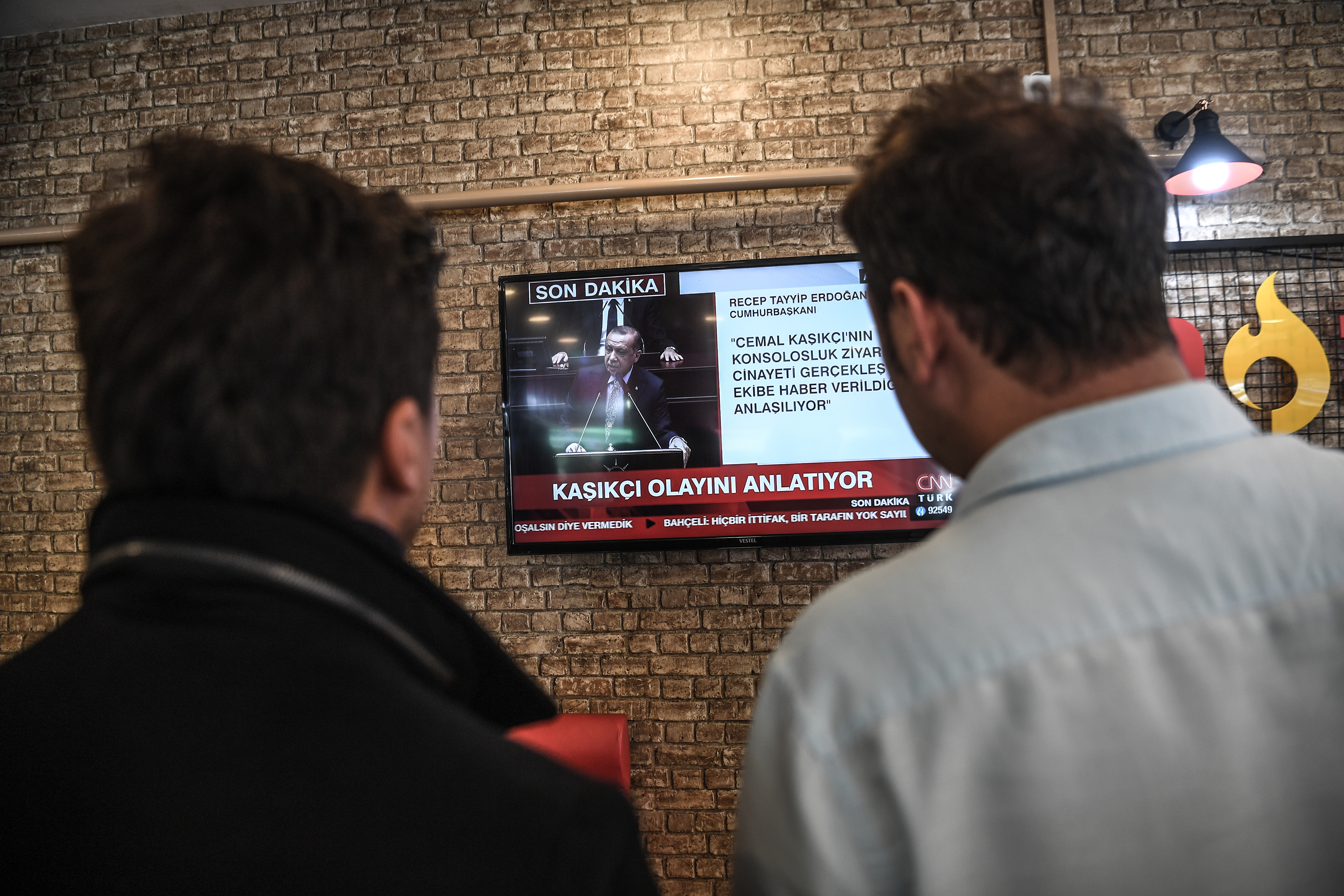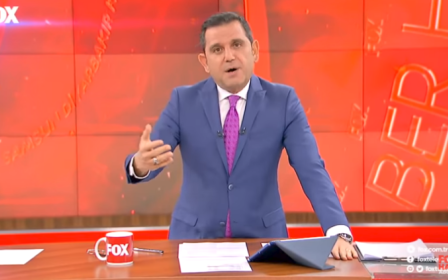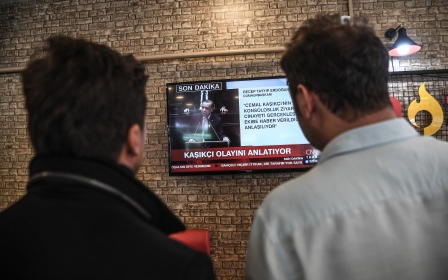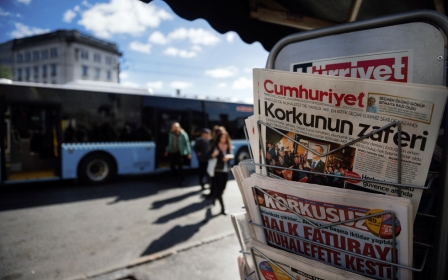Why Turkish media's credibility is dead
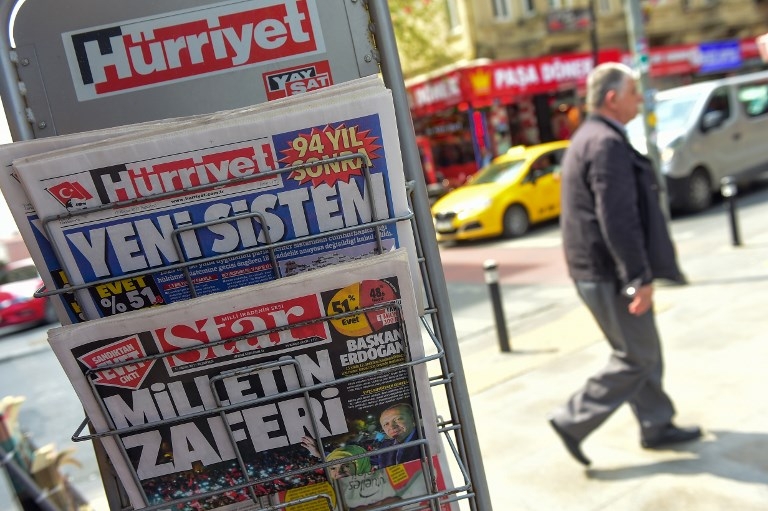
Media outlets in Turkey have become the source of distorted and misleading, if not completely fabricated, news. This unprecedented credibility crisis is destroying the public trust in journalism, leaving readers defenceless in an age of information chaos.
As the 31 March municipal elections are held on Sunday, there is a growing disenchantment, not only among those critical of the ruling AK Party, but also among its supporters, with the majority of news outlets, due to their blatantly partisan and unreliable coverage.
One recent case is particularly disturbing, underpinning how the majority of media outlets have been spreading propaganda and disinformation, further blurring the already-obscure line between fact and fiction.
A fabricated statement
New MEE newsletter: Jerusalem Dispatch
Sign up to get the latest insights and analysis on Israel-Palestine, alongside Turkey Unpacked and other MEE newsletters
On 16 March, Turkey's leading media outlets, Hurriyet, Posta and CNN Turk - all of which were sold to a pro-government conglomerate as part of the sale of Dogan Media Group last year - carried on their websites almost-identical headlines citing Peoples' Democratic Party (HDP) co-chair, Sezai Temelli, as saying: "Istanbul and Ankara will be run by HDP, not by CHP candidates." Hurriyet and CNN Turk's headlines described this as "an open threat and confession by Temelli".
Journalists, media professors and fact-checkers were quick to notice that Temelli made no such statement during his live TV appearance.
Yet, despite widespread criticism of these outlets for carrying a fabricated headline in a seemingly deliberate attempt to advance the government’'s election campaign rhetoric, they did not correct or retract the story.
In the post-truth age in which we live, fake, distorted and misleading news has become ubiquitous - particularly in Turkey
Hurriyet, once seen as the flagship of Turkish press, went so far as to defend its misleading headline in a bizarre online statement: "Temelli’s remarks indicated HDP is part of the CHP and IYI Party alliance.
"CHP candidates and those who criticise the story should demand an explanation from HDP co-chair Sezai Temelli, not from us."
The same rhetoric is being repeated by the AK Party and its nationalist ally, the MHP, as well as by anonymous accounts with heavily sponsored posts on social media - though this link has been denied at the highest levels by HDP, CHP and IYI party officials.
In a response to Hurriyet's statement, Temelli, during an election rally in Istanbul, said: "Although they are the ones who published a fake story, they ask me to correct it. Why am I supposed to correct the lies they made up?"
Hurriyet 'insisted on a lie'
Founded in 1948, Hurriyet has not always held fast to journalistic values; one could easily compile a long list of unethical stories published in its pages. But after the Dogan Media Group sale, its journalistic quality took a turn for the worse. Its management was replaced, and many well-regarded journalists who had worked for the daily for years either resigned or were laid off.
Faruk Bildirici, a veteran journalist who served as the newspaper's media editor for close to a decade, was among them. Often critical of Hurriyet's editorial decisions, which have been at odds with basic journalistic standards, he was laid off earlier this month.
Asked in a TV interview about Hurriyet's misleading headline, Bildirici responded: "They insisted on a lie by keeping the story in the headline area of its website for two days. They destroyed a 70-year-old newspaper's credibility and reliability completely."
Public trust in the media is already alarmingly low in Turkey, as it is in many other countries around the world, as the spread of misinformation and disinformation shows no signs of slowing down. According to a 2018 survey conducted in Turkey by Kadir Has University, fewer than a third of participants said they trusted the media.
This is in large part because of partisan outlets, regardless of which political side they support, publishing false or misleading stories aiming to either push their own agenda or to discredit others.
Eroding the public trust
In the post-truth age in which we live, fake, distorted and misleading news has become ubiquitous - particularly in Turkey, according to recent surveys.
In a Reuters Institute survey conducted in 2018, Turkey ranked first out of 37 countries in terms of news consumers complaining about fake stories.
Almost one in two respondents said they came across fabricated news at least once a week. And according to the Open Society Institute's 2018 Media Literacy Index, Turkey is second only to Macedonia when it comes to media illiteracy in a survey of 35 European countries.
There is no doubt that the country’s biggest media conglomerate resorting to fake stories in its various platforms will further erode public trust.
"We do know that readers and listeners and viewers across the world depend on - even love - the news outlets that promise, and deliver, honest, enquiring, brave journalism," writes Alan Rusbridger, former Guardian editor-in-chief, in his recently published book Breaking News: The Remaking of Journalism and Why It Matters Now.
"If the world wakes up in time then we may be all right. Trust me, we do not want a world without news."
Indeed, the growing number of news consumers in Turkey - regardless of their lifestyle or political stance - do not want a country without news, which is why we must call out the media for failing to uphold journalistic standards.
The views expressed in this article belong to the author and do not necessarily reflect the editorial policy of Middle East Eye.
Middle East Eye delivers independent and unrivalled coverage and analysis of the Middle East, North Africa and beyond. To learn more about republishing this content and the associated fees, please fill out this form. More about MEE can be found here.



